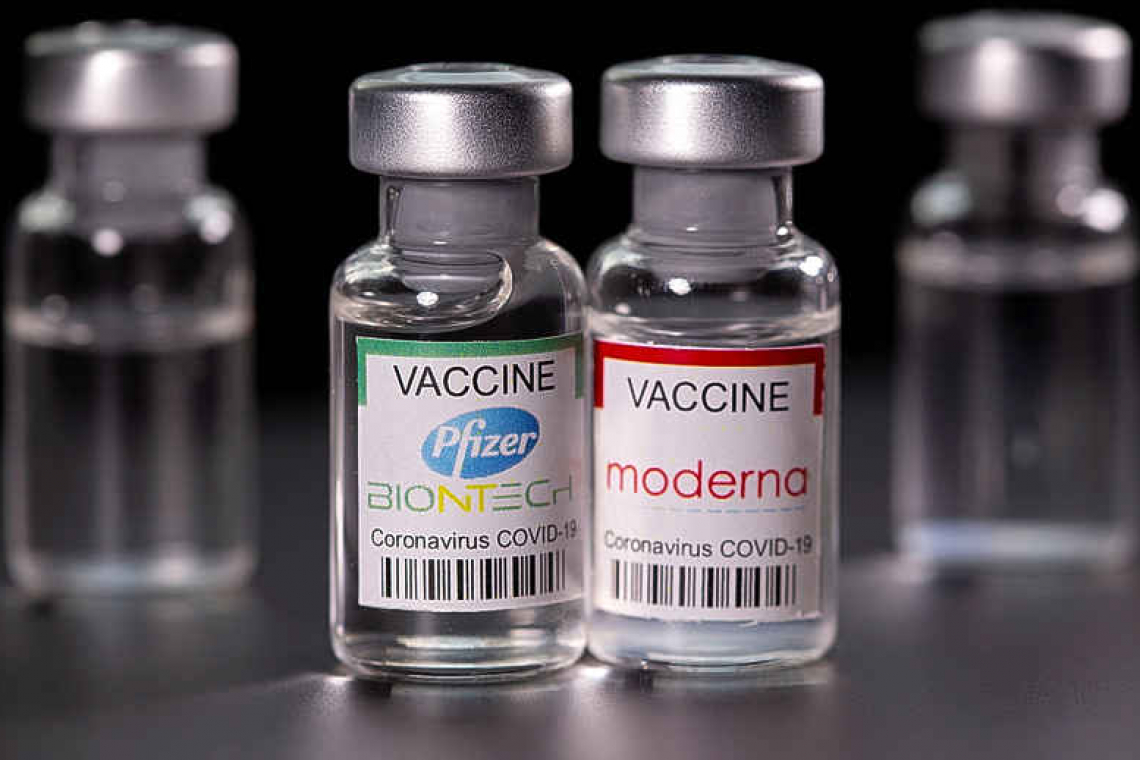BRUSSELS/NEW YORK--The European Union on Thursday backed a U.S. proposal to discuss waiving patent protections for COVID-19 vaccines, but drugmakers and some other governments opposed the idea, saying it would not solve global inoculation shortages.
European Commission President Ursula von der Leyen expressed willingness to explore a waiver after President Joe Biden on Wednesday promoted the plan, reversing the U.S. position.
"The main thing is, we have to speed this up," U.S. Secretary of State Anthony Blinken said on Thursday as India battled a devastating COVID-19 outbreak. "None of us are going to be fully safe until ... we get as many people vaccinated as possible."
A patent waiver is "one possible means of increasing manufacture, and access to vaccines," he said, as the White House denied a split among officials over the waiver idea.
Biden's administration endorsed negotiations at the World Trade Organization to gain global agreement. WTO Director-General Ngozi Okonjo-Iweala told member states that she "warmly welcomed" the U.S. move. "We need to respond urgently to COVID-19 because the world is watching and people are dying," she said.
World Health Organization (WHO) chief Tedros Adhanom Ghebreyesus reached for capital letters in a tweet calling Biden's move a "MONUMENTAL MOMENT IN THE FIGHT AGAINST #COVID19," and said it reflected "the wisdom and moral leadership of the United States."
Despite that enthusiasm, drugmakers, who stand to lose revenue if they are stripped of patent rights to COVID-19 vaccines, and other critics found flaws in the proposal. The complexities of manufacturing means free access to the intellectual property is not enough to immediately increase vaccine production, they said. Moderna waived its patent rights in October, and on Thursday noted the lack of companies able to rapidly manufacture a similar vaccine and secure approval for it. Combined, Pfizer Inc and Moderna Inc have forecast over $45 billion in sales this year for their COVID-19 vaccines.
In the long term, a waiver would discourage pharmaceutical companies from rapidly responding to future global health threats with large research investments, some said. Germany, the EU's biggest economic power and home to a large pharmaceutical sector, rejected the idea, saying vaccine shortages were due to limited production capacity and quality standards rather than patent protection issues.
Health Minister Jens Spahn said he shared Biden's goal of providing the whole world with vaccines. But a government spokeswoman said in a statement that "the protection of intellectual property is a source of innovation and must remain so in the future."
Moreover, a waiver would take months to negotiate and require unanimous agreement among the 164 countries in the WTO. Drug companies urged rich countries instead to share vaccines more generously with the developing world.
Stock prices for drugmakers largely recovered after initially falling sharply after Biden backed the waiver idea. Moderna was off 1.3% after earlier dropping 12%, and the U.S. shares of its German partner BioNTech SE shed 0.6% after falling as much as 15% earlier.
"The bottleneck is neither access nor patents (or price) but simply that there aren't enough vials, raw materials, etc to manufacture it regardless of patents," Jefferies analyst Michael Yee said of expanding COVID-19 vaccine production.
The pharmaceutical industry's main lobbying group, PhRMA, said: "This decision does nothing to address the real challenges to getting more shots in arms, including last-mile distribution and limited availability of raw materials."







